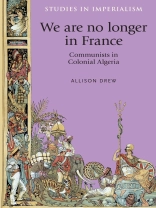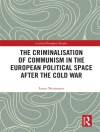This book recovers the lost history of colonial Algeria’s communist movement. Meticulously researched – and the only English-language book on the Parti Communiste Algérien – it explores communism’s complex relationship with Algerian nationalism. During international crises, such as the Popular Front and Second World War years, the PCA remained close to its French counterpart, but as the national liberation struggle intensified, the PCA’s concern with political and social justice attracted growing numbers of Muslims. When the Front de Libération Nationale launched armed struggle in November 1954, the PCA maintained its organisational autonomy – despite FLN pressure. They participated fully in the national liberation war, facing the French state’s wrath. Independence saw two conflicting socialist visions, with the PCA’s incorporated political pluralism and class struggle on the one hand, and the FLN demand for a one-party socialist state on the other. The PCA’s pluralist vision was shattered when it was banned by the one-party state in November 1962. This book is of particular interest to students and scholars of Algerian history, French colonial history and communist history.
表中的内容
Introduction – Imagining socialism and communism in Algeria
1. The land and its conquest
2. Grappling for a communist foothold
3. ‘The mountain “was going communist”’: peasant struggles on the Mitidja
4. ‘This land is not for sale’: communists, nationalists and the popular front
5. The nation in formation: communists and nationalists during the Second World War
6. For an Algerian national front: unity and division in the liberation struggle
7. Sparking an insurrection: pressure from the countryside
8. ‘Our people will overcome’: to the cities and the prisons
9. ‘We need a country that talks’: imagining the future Algeria
Conclusion: Algerian communists and the new Algeria
Bibliography
Index
关于作者
Allison Drew is Professor of Politics at the University of York












